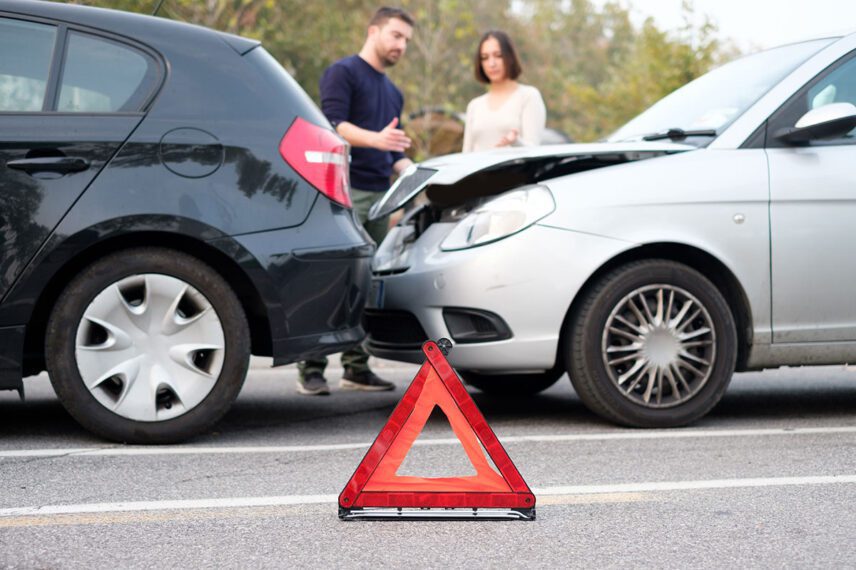What to Say and What Not to Say to an Insurance Adjuster After A Car Accident

Dealing with the aftermath of a car accident can be a stressful experience. Sometimes the thought of talking with an insurance adjuster, who might try to offer less than you deserve for the injuries you sustained, is overwhelming.
Learning what insurance adjusters do and how to talk with them can help reduce the anxiety surrounding these situations. Here are the most important factors to understand before an insurance adjuster asks you for a statement about a car accident.
What is an Insurance Adjuster?
Simply put, they are representatives of the at-fault party or their insurance company. When an accident occurs from the negligent actions of the other driver, it is their job to speak with you, the injured party, to get a statement about the details of the accident.
After receiving your statement, an insurance adjuster decides if the party they represent is responsible for the accident and how much compensation they owe if they are liable. Once they have determined these two things, they will make a settlement offer to you.
The most important thing to know at this point is that insurance companies are just like every other business that wants to cut their losses and make more money. Even though they have to honor an insurance policy, they will try to keep the settlements as low as possible.
Making Your Statement
Now that you know what an insurance adjuster is and what they do, what should you say when making your statement to them?
1. Always Be Polite
Your emotions are most likely running high after an accident, and you feel rightfully upset. You might even be dealing with the devastation of losing a loved one in the accident. Trying to heal from injuries that cause pain and discomfort while facing unexpected medical expenses can put anyone on edge.
It is easy then to get angry at the insurance adjuster as you don’t feel like you should not have to defend yourself when so much damage resulted from someone else’s negligence. However, staying calm and being polite to the adjuster will give you a better chance of a fair settlement.
2. Plan What You Want to Say Beforehand
While an insurance adjuster doesn’t read your Miranda rights beforehand, you should still consider that “anything you say can and will be used against you” when talking to an insurance adjuster. Remember—they work for the opposing party’s insurance company and are not there to help you.
Knowing what you need to say in your statement beforehand can ensure you don’t give any details that would hurt you in the end. The first thing to remember is to keep it simple and avoid discussing details about your part in the accident. Even if you feel that the other driver was clearly at fault, you don’t want to give any details that could be used as an admission of liability.
Answering questions about where the accident occurred and who it involved are easy to answer without adding extra details. However, if an insurance adjuster asks you a question you don’t feel you can answer, don’t be afraid to politely refuse. For example, if you describe your injuries as a sprain and bruising but later you develop unforeseen complications, your previous statements will keep you from getting compensated for the worsening injuries.
Another practice to avoid is using social media to give updates or details about your accident. The insurance adjuster will look for this and use it to prove your injuries aren’t as severe as you claimed.
3. Don’t Be Afraid to Reject the First Offer
You might hear exaggerated tales about how long cases can take to settle from the insurance adjuster. This tactic will try to get you to accept an early, low offer because they know you have medical expenses looming over you and will play to that desperation. That is not to say that negotiations don’t take more time, but it is worth it for the settlement increase you will most likely receive.
You shouldn’t have to pay out of pocket for any expenses you experience after an accident. Accepting the first offer might give you faster compensation, but if the severity of your injuries increases at all after you’ve released the at-fault party of liability, you will not receive any additional payment.
Take your time with negotiations, and don’t let an insurance adjuster pressure you into accepting anything less than a fair settlement.
4. Document Your Evidence
Evidence from your accident should not be considered something only lawyers use in court. Take pictures of your injuries or any damage done to your car. Records like this will only bolster your claim and provide an argument that is hard to combat when negotiating your settlement.
Along with photos, you should also have a detailed account of all the expenses that resulted from your accident, including:
- Medical expenses – hospitalization, surgery, physical therapy, prescription costs, etc.
- Repair expenses – car repair bills, estimates for replacing a totaled car, etc.
- Lost wages – The time you had to take off of work and the resulting lost income.
Gather this evidence efficiently, but don’t rush yourself when it comes to your recovery time, and make sure more expenses don’t come up later.
Final Thoughts
At the end of the day, if dealing with an insurance adjuster feels too overwhelming for you while also trying to recover from your accident, know you don’t have to do it alone. Getting the help of an experienced personal injury lawyer can provide someone who is on your side and will fight for you so that you can feel confident you end with a settlement that compensates you for all the damages you suffered.






